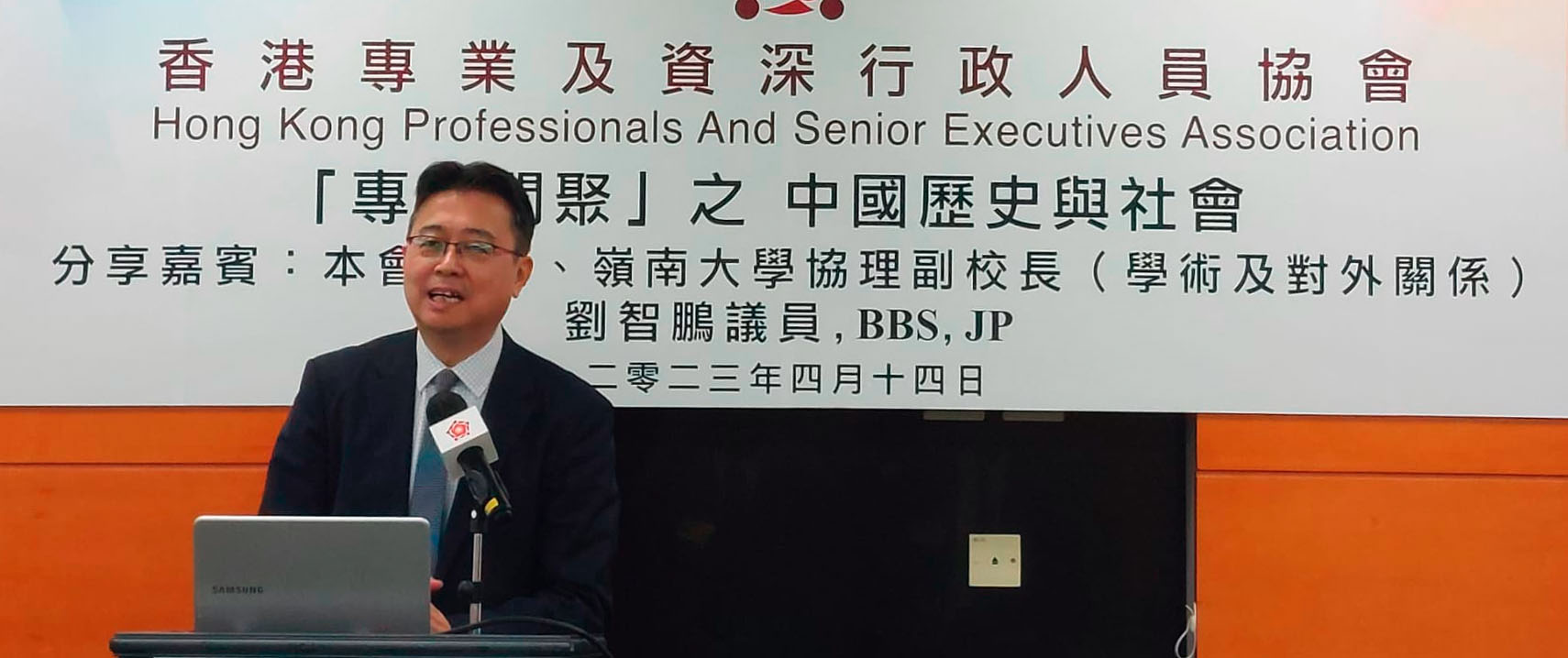OVER SEVERAL THOUSAND years of history, China never occupied, colonized or invaded other countries, top Hong Kong historian Lau Chi-pang said in a recent talk.
The country is focused on its own affairs and dislike of war is deeply set in its culture, said Professor Lau, a Lingnan University academic, and a member of Hong Kong’s Legislative Council.

A poem composed twelve centuries ago by renowned poet Li Hua (李華) in the Tang Dynasty depicted how deeply Chinese people loved peace and hated war, he added. Mourning for an Ancient Battlefield (弔古戰場文), captured the terror of conflict when Han troops fought with the northern nomads known as the Xiongnu, during the Qin and Han dynasties (from BC 221 to AD 220).
Li’s work said rulers have to resort to governance through benevolence, righteousness, and moral virtues to win people’s hearts—as opposed to rule by force or by hegemony (rule by strength).
CONFUCIANISM PROMOTED PEACE
This culture is attributed to the profound influence of Confucianism and ancient Chinese philosophies, the professor told a seminar organized by the Hong Kong Professionals and Senior Executives Association.
China’s best-known philosopher, Confucius, emphasized the cultivation of virtues and spoke often about moral ethics. Confucianism extolls the virtues of benevolence, righteousness, propriety, wisdom and trustworthiness. Later Confucian scholars emphasized filial piety, brotherly bonds, loyalty, trustworthiness, propriety, righteousness, integrity and humility.

Modern China’s founding father Sun Yat-sen, despite professing Christianity, also was greatly influenced by Confucianism’s focus on societal harmony and peace.
The result is that Chinese people value family relationships and cherish behavioral and moral ethics above personal self-interest.

PEOPLE-ORIENTED POLICIES
Over the years, China has built on people-oriented initiatives by eradicating extreme poverty, bolstering economic development in rural regions, and ensuring people enjoy better living standards, Professor Lau said.
To eradicate poverty, the Central Government set a clear overall plan and strategic direction via economic and social development: stimulating economic vitality, fostering education and technology, and initiating various anti-poverty policies to support the poor and the underprivileged. These techniques are well worth the attention of other developing countries.

China has also successfully built up a modern government with central leadership, thereby ensuring all policies can be implemented across cities and counties: something that was rarely seen in Chinese history of imperial dynasties.
PEACEFUL CO-EXISTENCE
Today China stands on its own among countries in the world amid increasingly tense geopolitics on the global stage, he said.
After his talk, Professor Lau was asked for his thoughts on future development of the world. He replied that he does not expect geopolitical tensions to be eased in the short-term, but believes Chinese culture’s values are universal. People everywhere want peace and development, and these are the common values entrenched in the Chinese communities’ way of thinking.

What the world needs, he said, was “more solidarity and co-operation”. If this can be achieved, then all countries can follow the path of peaceful development and jointly build a harmonious world of enduring peace.
Image at the top from Hanson Lu/Unsplash
